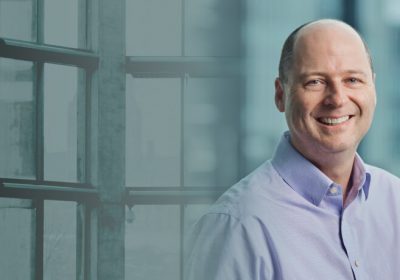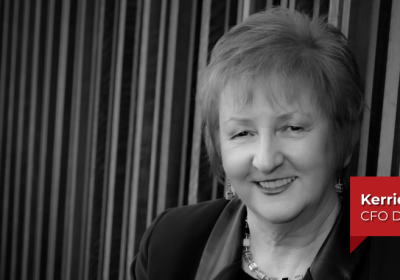
- Author: Kate Jones
- Posted: November 26, 2024
CFO Q&A > Emma Seymour, CFO | Deputy
Emma Seymour is just short of her third successful year as CFO of Deputy. The workplace rostering software company achieved unicorn status in Australia in 2024 following a US$25 million investment from a US staffing agency. Shortly after hitting the iconic $1 billion valuation, accounting software firm Xero purchased a US$25 million stake in Deputy.
Seymour talks with CFO Magazine A/NZ’s Kate Jones about how Deputy has performed this year and what’s to come in the future.
CFO Magazine – A lot has happened since we interviewed you in July 2023. What have been some of the biggest milestones over the past 18 months?
ES – Over the last 18 months, we took on two key strategic partnerships. One was with Express Pros, which is a staffing agency in the US, and the other one was with Xero.
Each of those invested in Deputy $25 million US and that’s just underscored our commitment to being able to scale sustainably while building relationships that create value for our customers. They’re two very exciting ones for us in terms of the value they’ve created, but also the potential growth that they will unlock from here. Achieving unicorn status earlier this year was a significant milestone and just reinforced Deputy’s position as a leader in workforce management.
Another milestone is probably just continuing to grow the team. We have a wonderful staff with us and our leadership team that is made up of 80 per cent women and a very, very diverse team, which we’re always very passionate about. Having a diverse team is very important to us because it’s a reflection of the customers that we serve and making sure that we have real empathy for them.
CFO Magazine – As a CFO, how are you feeling about 2025?
ES – I’m very optimistic about Deputy’s future into 2025 and beyond. The last couple of years have been so important for us and we have really strengthened our foundations and we have made so many key strategic moves that have just really shored up our future. Now we just need to put our heads down and execute on strategy. We have been growing the business for a prolonged period in a sustainable way and we’ve been very resilient through tough times. I’m fully optimistic that we will continue to grow in a sustainable way and have many more successes into next year and beyond.
Over the last couple of years, the one thing we’ve learned is how much the world can change and how quickly it can change. I think Covid really did that for a lot of businesses and then everything that’s followed from a macroeconomic level and beyond, but Deputy has been able to endure that and come out the other side and continue to scale and continue to celebrate so many wins.
We’ve learned that our customers are so incredibly resilient as well. So if anything, I’m just very confident that things will always change and we will always need to adapt, but we are very much able to do so and I’m very confident in our ability to pivot and to continue scaling, and having incredible outcomes.
CFO Magazine – Have there been discussions within Deputy in the last 48 hours about what the election of Donald Trump means for your company?
ES – I think it’s not an unusual or uncommon thing that these changes happen. There’s always changes in parties and policies and as I said, Deputy is a company that has proven it can endure and sustain in whatever environment we’re operating in, there’s always room to thrive. We’re very much focused on our customers and our strategy and just continuing to deliver real value for the 2.8 billion shift workers that clock in every day.
CFO Magazine – How do you see finance and the role of the CFO evolving over the next five years?
ES – I think the role of CFO is already evolving. It’s evolved beyond a traditional CFO that may have looked back on past performance and historical numbers to report on what has happened. It has already moved into a role that is very much one of a commercial and a strategic leader who needs to be able to anticipate what is coming in the market that you’re operating in or what is necessary for customers. I think we will just continue to see the role of the CFO evolve on that trajectory and in that direction it increasingly requires the ability to balance financial expertise with strategic foresight.
CFO Magazine – In terms of budgeting, what areas of the business will you be investing in and what strategies are you considering to adapt to the evolving economic landscape?
ES – In terms of adapting to the evolving economic landscape, the key element is understanding different scenarios that may play out and being prepared for multiple scenarios so that we can remain agile, pivot, be flexible, and adapt as and when needed. In terms of strategic investment, we’ll be very focused on product development, customer service, and strategic partnerships to support reliable growth.
CFO Magazine – How can CFOs balance short term cost-cutting measures with the need to invest in future growth?
ES – It’s always a balance and I get this question a lot. I think you have to have such a deep understanding for the business you’re operating in because there’s no one size fits all, there’s no silver bullet, and I think there’s always the ability to optimise operational expenses and make sure that you’re being as efficient as possible and really maintaining that focus on scaling responsibly. But as macroeconomic conditions improve, you would want to see, and you would hope to see more appetite for growth and a little bit more drive toward that.
At Deputy, we are very ambitious and focused on growth, and we will be investing more and more in those activities. But, we will always maintain a responsible mindset toward spending and making sure we do so in a scalable way.
CFO Magazine – 2025 is tipped to be the year of the ‘tech stack’ for CFOs. What tools are you using and finding most effective?
ES – With Deputy being remote first, any tools that enhance connectivity and allow for better alignment across teams have been really important for us. We rely on a lot of tools in terms of how we’re communicating, having meetings and managing cross-functional goals and projects. They [tools] are becoming essential for us. Other key tools for us are those that surface insights and data in a digestible way, that help us measure impact and progress, and traction against key milestones to ensure we are executing on strategy in the right way. ThoughtSpot is a tool for us that we really appreciate in terms of data and insights. We also use Slack, Zoom and Asana.
CFO Magazine – What’s your take on generative AI technologies in the finance function? Is it a threat or a strategic partner?
ES – AI’s going to be able to handle repetitive tasks and, hopefully, enable finance teams to focus on strategic growth and more valuable work. It’s too early to anticipate exactly the role AI is going to play day-to-day in finance teams, or in broader functions. It has the ability to improve efficiencies and to automate things. But where it will disrupt and replace traditional roles and functions is yet to be seen.
We are more focused on how it [AI] will impact customers and how we should be monitoring the impact that it’s having on their work and the flow on of that. Also, how we can think about it within Deputy as a product and make sure that we’re giving our customers the most efficient and innovative solutions.
CFO Magazine Work – Workforces are set to change over the next five years as Generation Z enters the workforce and an ageing population works for longer. What strategies have you implemented to attract, retain and develop diversity in finance talent in the organisation?
ES – Diverse teams are incredibly important to us. At Deputy, being already such a diverse team, we’re well positioned to attract a diverse workforce because we’re already reflecting the needs of our customer base and the people we are bringing into our team.
One of the things that we’ve done that has been really important is that Deputy has remained remote first. We do find that this is something that is very appealing, particularly to Gen Z and Millennials having the flexibility in their work and having flexible work policies, introducing mentorship programmes and development initiatives that are fostering their career progression. All of these things are conducive to a thriving and diverse workforce.
CFO Magazine – What trends are you seeing in workforce management that might impact financial planning in 2025?
The shift toward automation and flexibility is starting to reshape workforce dynamics, so that’s influencing our resource allocation. Also, the continued focus on flexibility and team structures is improving productivity and wellbeing, which has been helping Deputy remain competitive and agile.
CFO Magazine – Flexibility is crucial with a recent survey suggesting that one in three workers expect four-day weeks by 2030. Can you share a little on the importance of flexibility for you and your teams?
ES – It’s very important for us, and Deputy supports flexible work arrangements because it’s empowering team members to work in the best way they can. It’s actually supporting productivity and we’ve seen it be very positive in terms of achievement of goals. It’s very important to us because we are advocates of a thriving workplace and giving people the support and the tools to be able to manage both their personal and their work lives is crucial.
We are remote first and we are a global company, and we have a global workforce. It needs to be that way so that we can attract and retain the best talent all around the world. What we do find is that people come into the office because there is such a strong culture in a sense of collaboration. For us, it’s happened organically where people will typically come in one to two days a week to be together and they coordinate that naturally with their teams. It’s not mandated.
CFO Magazine – How have you evolved as a CFO and leader over the last five years and what would you like your CFO legacy to be?
ES – The nature of working in a scale-up, it imposes on you to always be growing and evolving because of the variety of the work and the challenges with operating at such a pace and the strategic decisions that are made. It creates an environment where there are so many opportunities for growth.
I’ve evolved as a leader because I’ve needed to stretch and take on more and round myself out commercially. I would hope that has strengthened my leadership capabilities and style. It’s probably too soon to think about my CFO legacy – that might be a few years away from now.
CFO Magazine – Looking to the next five years, what is the single biggest risk as CFO that keeps you awake at night?
ES – It’s more the element that I shared in terms of the level of unpredictability we’ve seen play out over the last couple of years. That has really emphasised the need to be able to anticipate what’s coming and to respond accordingly .
The pace at which things are changing and ever-evolving now is more alarming than anything. Being able to anticipate in such an unpredictable time, setting the business up for success and making sure that we’re always strengthening our position and acting early enough to get in front of any challenges that might happen. Being able to stay at the forefront of everything is the most critical step.
CFO Magazine – Finally, what advice would you give to other CFOs who are preparing for the challenges of 2025?
ES – My advice would be to invest in the team, and the most critical thing is going to be extreme clarity and focus on the strategic initiatives that will move the company forward and really progress against whatever goals they might have.
Make sure that the strategy and the priorities are so clearly articulated that everybody can align around the right initiatives and the collective will move things forward.








